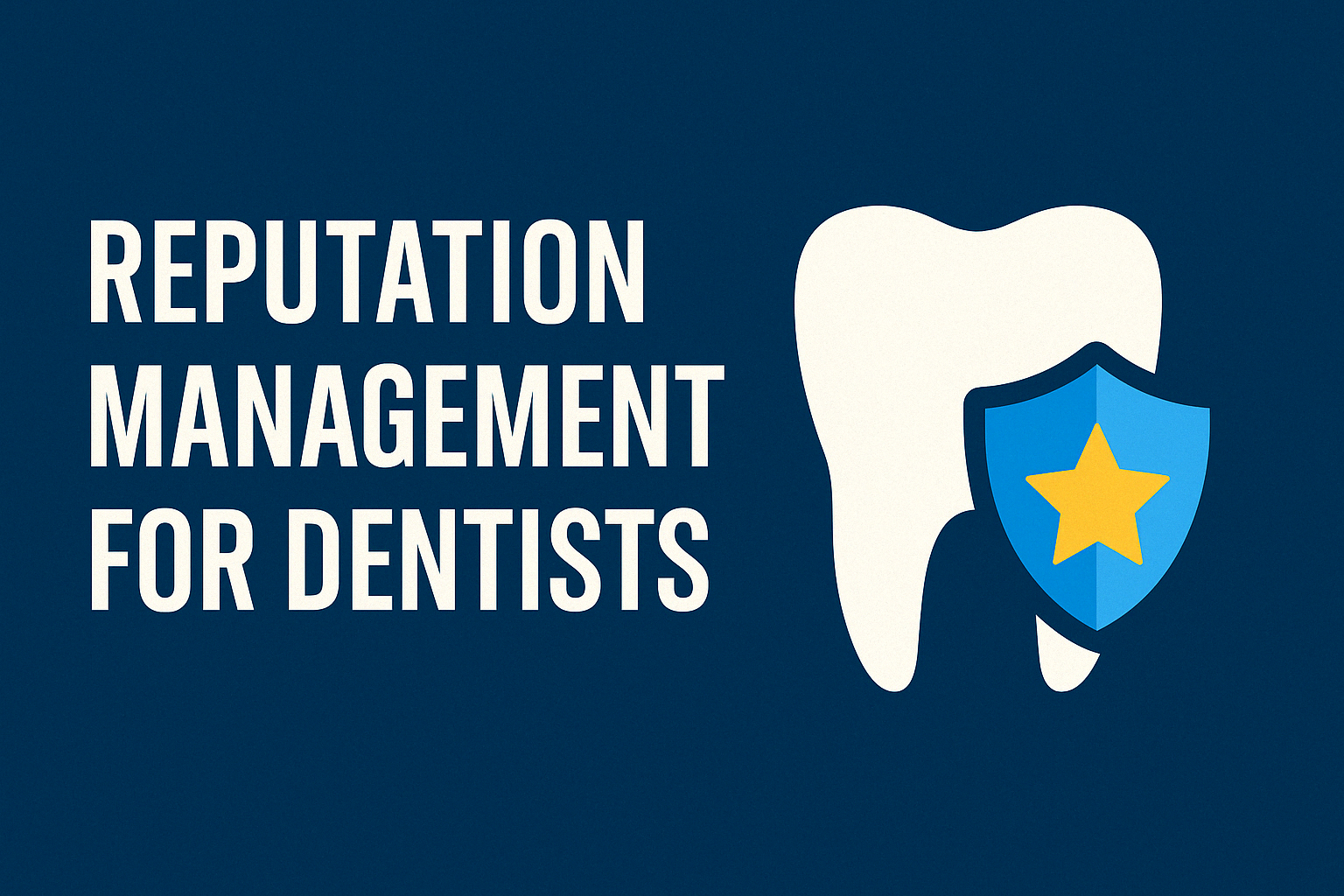Estimated reading time: 5 minutes
Dentists rely on patient trust and local visibility to drive appointment bookings. But when one bad review or a false claim starts ranking in Google search results, it can ripple through your entire practice. From new patients skipping over your clinic to decreased insurance referrals, the impact is real. That’s why reputation management for dentists is essential in today’s search-first healthcare environment.
This guide unpacks the full toolkit for protecting your name, building authority, and turning your dentist online reputation into a practice growth engine.
Table Of Content
Why Online Reputation Is Critical for Dental Professionals
Patients Check Reviews First
According to BrightLocal, over 87% of patients read reviews for healthcare providers before scheduling an appointment. For dentistry, Google and Yelp often form the first impression.
Star Ratings Affect Local SEO
Google’s map pack favors highly rated and frequently reviewed practices. If your rating is below 4.0 stars, you’re likely losing clicks to competitors.
Word-of-Mouth Happens Online
Even referrals from other patients are cross-checked against online presence. If there’s any red flag—one-star reviews, negative blog posts, unclaimed profiles—patients may hesitate.
Key Elements of Dentist Online Reputation Management
Monitor Mentions and Reviews Across Platforms
Set up alerts and track:
- Google Business Profile
- Yelp
- Healthgrades
- Zocdoc
- Facebook and Instagram
- Local dental directories
Use tools like:
Ask for Reviews Ethically and Consistently
Happy patients rarely leave reviews unless asked. Create a system:
1. At checkout, front desk offers follow-up link or QR code
2. Email or SMS reminder is sent 24–48 hours post-visit
3. Patient leaves feedback on preferred platformAvoid offering discounts or gifts in exchange for reviews. It’s better to focus on authentic service and ask for honest impressions.
Respond to Feedback Professionally
HIPAA compliance is essential. Do not reveal any personal health information—even if the reviewer does. Instead:
"We appreciate your feedback and are sorry your experience wasn’t ideal. Please contact our office so we can address your concerns directly."Never argue, blame, or speculate publicly.
Removing and Suppressing Negative Content
If a review is defamatory, inaccurate, or left by someone who wasn’t a real patient, there are paths to have it removed:
- Flag on Google, Yelp, or Healthgrades as a violation
- File a legal request or cease-and-desist letter
- Use the HIPAA Privacy Rule for patient confidentiality misuse
- Contact hosting sites for false blog content takedown
Defamation Defenders assists dentists in removing or suppressing misleading content that threatens your professional image.
SEO and Content Creation to Boost Trust
Push down harmful results by publishing:
- Blogs on dental hygiene, cosmetic dentistry, or Invisalign
- Video Q&As or behind-the-scenes tours of your clinic
- Patient success stories (with consent)
- Case studies showing procedure outcomes
Target local search terms:
"best family dentist in [City]"
"top-rated cosmetic dentist near me"
"affordable dental implants [Location]"Optimize your content with structured data markup and update your Google Business profile weekly with fresh photos and posts.
Social Media Strategy for Dental Practices
Dentists are gaining traction on Instagram, Facebook, and TikTok. Your audience includes young adults, parents, and professionals. Use social to:
- Share patient transformations (with signed consent)
- Educate on common procedures or misconceptions
- Showcase office staff, seasonal promos, or events
Avoid:
- Commenting on patient-specific issues publicly
- Posting overly clinical or graphic photos
- Ignoring messages or negative comments
Crisis Management for Dental Clinics
Reputation threats include:
- Allegations of malpractice
- Billing disputes gone public
- Negative press from former employees or patients
- Viral social media backlash
Your Response Plan Should Include:
- Collect and document all relevant data
- Consult your attorney and a reputation professional
- Create a calm, non-inflammatory statement for press or online
- Offer internal resolution channels to the complaining party
- Suppress and counteract negative mentions with positive content
Integrating Reputation into Practice Management
Train Your Team
Staff should know how:
- Every touchpoint impacts patient experience
- Their interactions could lead to reviews
- To defuse tension before it escalates
Create a Review Culture
Make review generation part of the routine. Celebrate 5-star feedback internally and use it in external marketing.
Track and Improve Metrics
Measure:
- Average star rating by platform
- Monthly review volume
- Review response times
- Keyword sentiment in feedback
- Branded Google search volume
Case Study: Family Dentist Overcomes Yelp Crisis
A pediatric dentist in Chicago received a viral 1-star Yelp review that accused staff of negligence. The post gained traction in a parenting Facebook group, costing them 20+ bookings in one month.
What They Did:
- Engaged Defamation Defenders to investigate and flag the fraudulent post
- Gathered 65 new reviews in 90 days via post-visit email requests
- Published a blog titled “What to Expect at Your Child’s First Dental Visit” to clarify their methods
- Responded to all reviews with professionalism and speed
Results:
- Restored 4.7 average on Yelp
- Regained community trust
- Ranked #1 on Google for “best pediatric dentist in Lincoln Park”
Frequently Asked Questions (FAQ)
Only if they violate content policies. False or defamatory reviews may be flagged or legally removed with help.
Google and Healthgrades have the highest visibility. Yelp and Zocdoc are strong in urban markets.
Yes, if you avoid discussing any patient-specific details and maintain confidentiality.
Absolutely. Posting consistently and interacting positively boosts visibility and humanizes your practice.
We remove or suppress harmful reviews, guide SEO content, monitor reputation threats, and provide legal support when needed.
Related Contents:
MLA Citations:
- “Local Consumer Review Survey.” BrightLocal, https://www.brightlocal.com/research/local-consumer-review-survey/
- “Responding to Online Reviews: HIPAA Guide for Dentists.” American Dental Association (ADA), https://www.ada.org/
- “Dental Marketing and Reputation Strategy.” Dental Economics, https://www.dentaleconomics.com/
- “Patient Privacy and Public Reviews.” HIPAA Journal, https://www.hipaajournal.com/
- “Reputation Management for Dentists.” Healthgrades, https://www.healthgrades.com/



